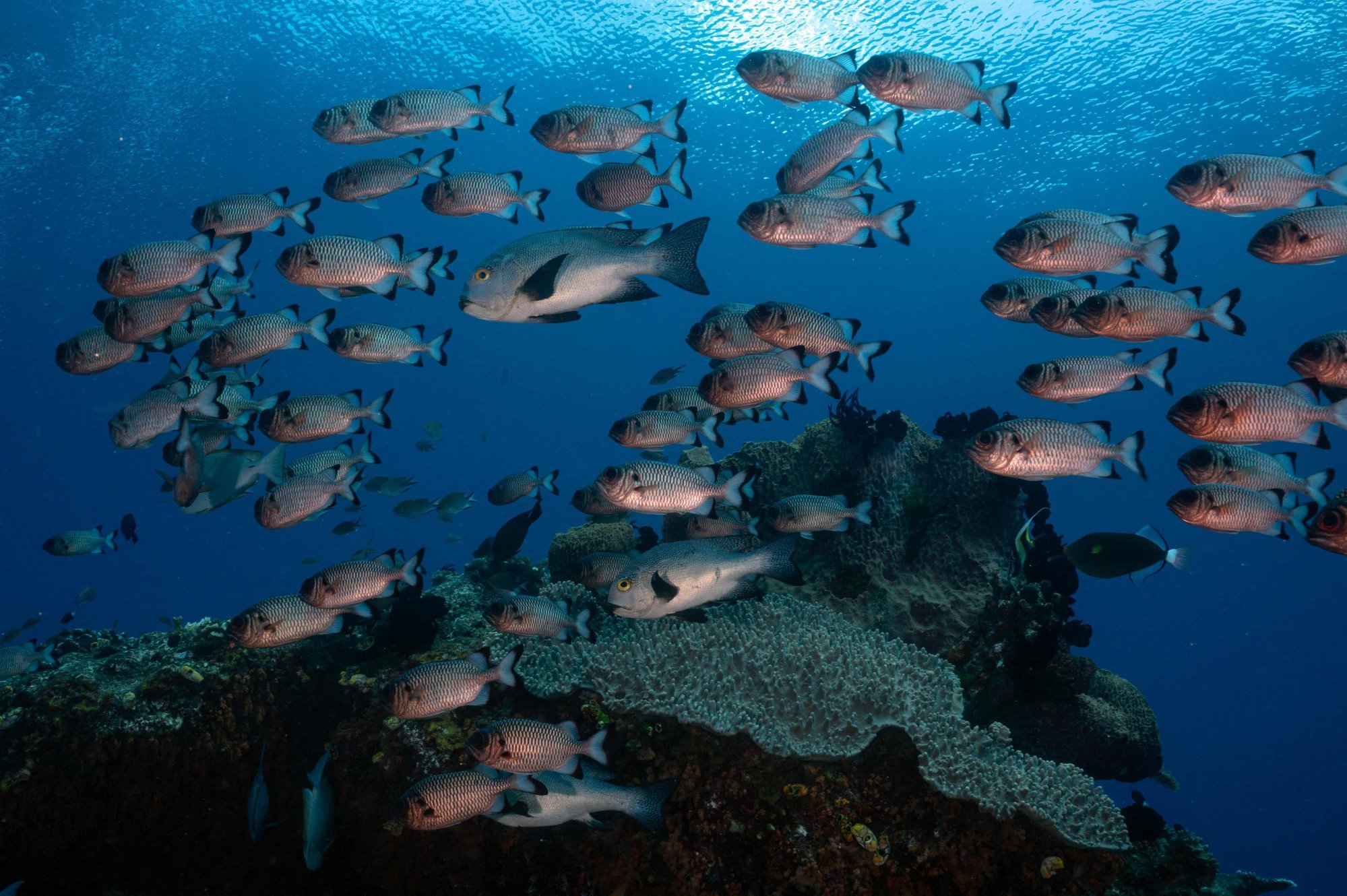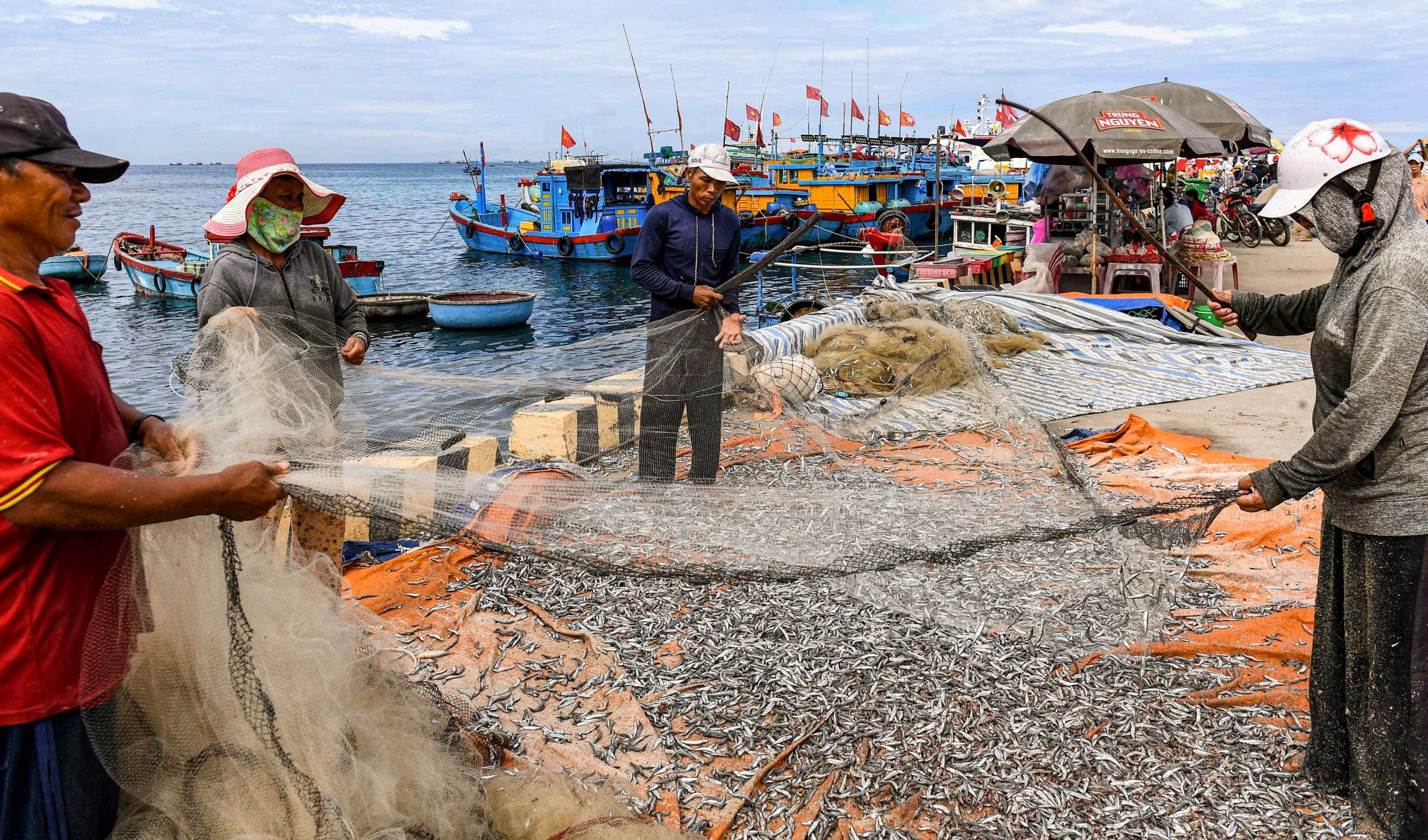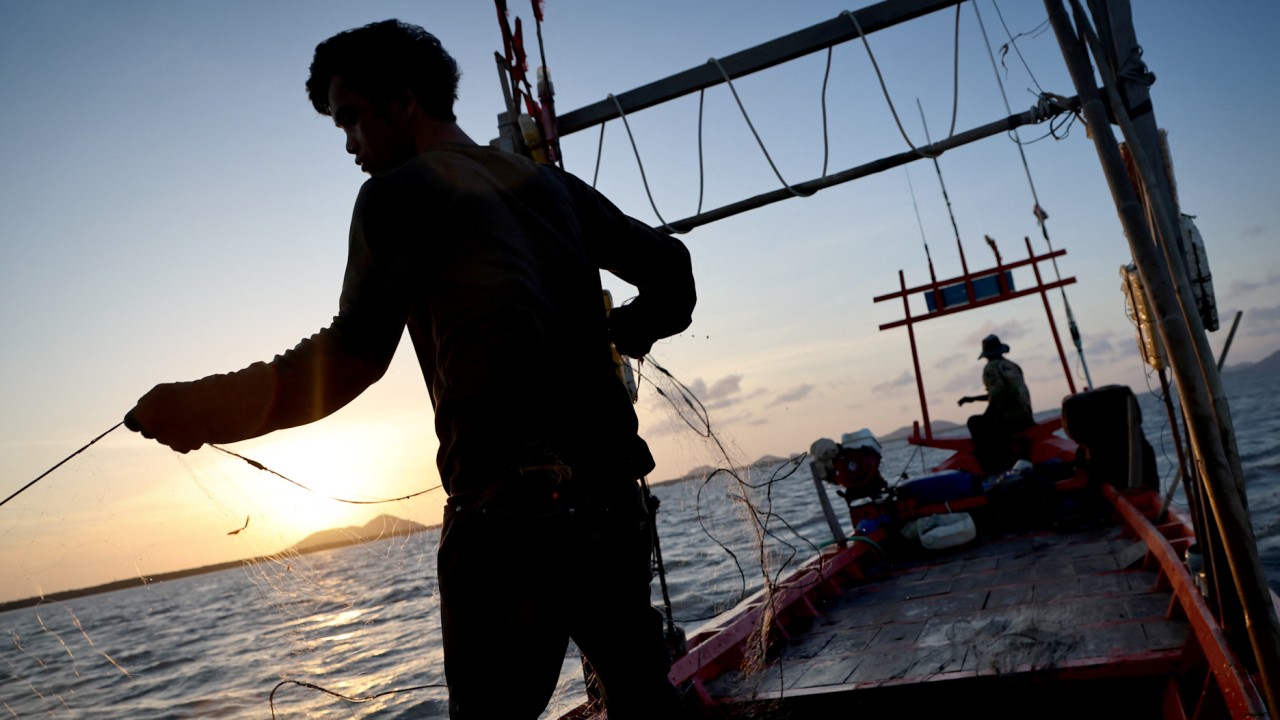Southeast Asia eyes seafood export bounty as sustainability falls by the wayside
[ad_1]
This story was supported by the Pulitzer Center.
Southeast Asia’s governments are unpicking crucial protections on who crews their fishing fleets and what comes back in their nets, environmentalists say, in a sector worth billions of export dollars that sends out an armada of boats to compete for catch each day.
From Vietnamese catfish and Indonesian skipjack tuna to Thai shrimp, the region’s waters are feeding a bottomless global appetite for fish and seafood that is supercharging the balance sheets of big conglomerates.

But hard-won controls on illegal, unreported and unregulated fishing (IUU) – a clean bill of health on which had become a badge of supply chain and consumer confidence in recent years, to indicate a country’s efforts tackling overfishing and widespread labour abuses in the industry – are now slowly being unwound amid the competing priorities of jobs, food supply, big money and the environment.
Trafficked crew are also vulnerable to being sold on to other boats during transshipment, while catch can be mixed or hidden to avoid inspection and clear reporting once back ashore.
Why Thailand’s favourite fish may soon be off the menu for good
Why Thailand’s favourite fish may soon be off the menu for good
“Our government is essentially rolling out the red carpet to big corporate vessels to ‘harvest’ tuna and other commodities in our seas,” said Parid Ridwanuddin, a campaigner for Indonesian environmental group Walhi.
Parid said the government must instead “prioritise policies that are restorative to our waters”.
The law’s repeal has already led to overfishing and forced Indonesia’s small-scale and traditional fishers to compete with large-scale, foreign vessels fishing waters already depleted from the effects of climate change, such as acidification.

But the value of its fisheries has since surged as new consumers have balanced out any drop in demand from the EU market.
Vietnam’s Association of Seafood Exporters and Producers projects a turnover of US$8.27 billion for this year. Yet Vietnamese boats are frequently some of the worst IUU offenders, being caught illegally fishing in waters from Indonesia to the Indian Ocean.
Warming seas, rolled back controls
A so-called Oceans Declaration was launched at this year’s summit calling for deeper study of the impact of greenhouse gases on the warming of the seas and ways to tackle “overfishing, habitat destruction and marine pollution”.
Human-trafficking allegations made that year by the US State Department were followed by an EU ‘yellow card’, bringing a cascade of negative publicity down on the country’s fisheries.
The Thai seafood industry built a reputation as one of the most accountable, transparent fisheries in the world. This rollback has come too soon
Tens of millions of dollars were spent cleaning up the industry, with Thailand running tight inspections of catch and crews at ports and piers – leading the EU in 2019 to delist it from a group of “warned countries” in recognition of the kingdom’s efforts as it drove regional anti-IUU measures while chair of Asean.
But the government of Thai Prime Minister Srettha Thavisin, who took office in August, says the crackdown has overcorrected a once-notorious industry. His government now wants to “unlock” the sector with a new Fisheries Act that critics say would roll back many of the controls limiting crews’ days at sea and monitoring catch for size and quantity.
“We worked closely with various fishing associations to consider the amendment and make it a complete act,” Commerce Minister Phumtham Wechayachai said as he announced the plan on November 30. “The government has been assigned to take urgent actions and complete this mission within the first 99 days of the administration.”
Environmentalists say the new act risks undoing years of leadership on combating labour abuses and IUU – and that may carry a cost for overseas buyers if standards start to backslide.
“The stakes couldn’t be higher,” said Dominic Thomson, Southeast Asia regional director at the Environmental Justice Foundation.
“The Thai seafood industry built a reputation as one of the most accountable, transparent fisheries in the world. This rollback has come too soon,” he said, adding that it appears to be driven by “bad advice and vested interests”.
An October letter to Srettha signed by 90 NGOs – including EJF, Greenpeace, Human Rights Watch, Oxfam and organisations in Indonesia and Malaysia – registered concern at the “alarming proposals” to end “critical reforms” in Thai fisheries.
Between 2017 and 2021, the EJF says the catch per unit effort – a measure of the abundance of sea life that indicates over-exploitation when it is decreasing – rose in the Andaman Sea from 11kg to 20kg per hour and in the Gulf of Thailand from 33kg to 45kg per hour. That period coincides with Thailand’s introduction of tough anti-IUU enforcement.
Thai fishermen fight extreme bright-green marine ‘dead zone’
Thai fishermen fight extreme bright-green marine ‘dead zone’
Overall, the trajectory for Southeast Asia’s marine stocks appears set.
In Kuala Lumpur’s Selayang wet market – the city’s largest – fishmongers say fewer fish, increasingly unpredictable weather and warming seas are making the precarious life of the region’s fishing communities even harder.
As acidification sucks oxygen from the sea, Malaysians are now also losing their cockles – a key ingredient in popular Chinese stir-fried noodle dish char kway teow.
“Tonnage is down by around 86 per cent since 2015,” said Aileen Tan Shau Hwai, of the Centre for Marine and Coastal Studies in Penang. “There’s no substitute, so there are no more cockles in our char kway teow.”
Additional reporting by Amy Sood and Hadi Azmi
[ad_2]
Source link


